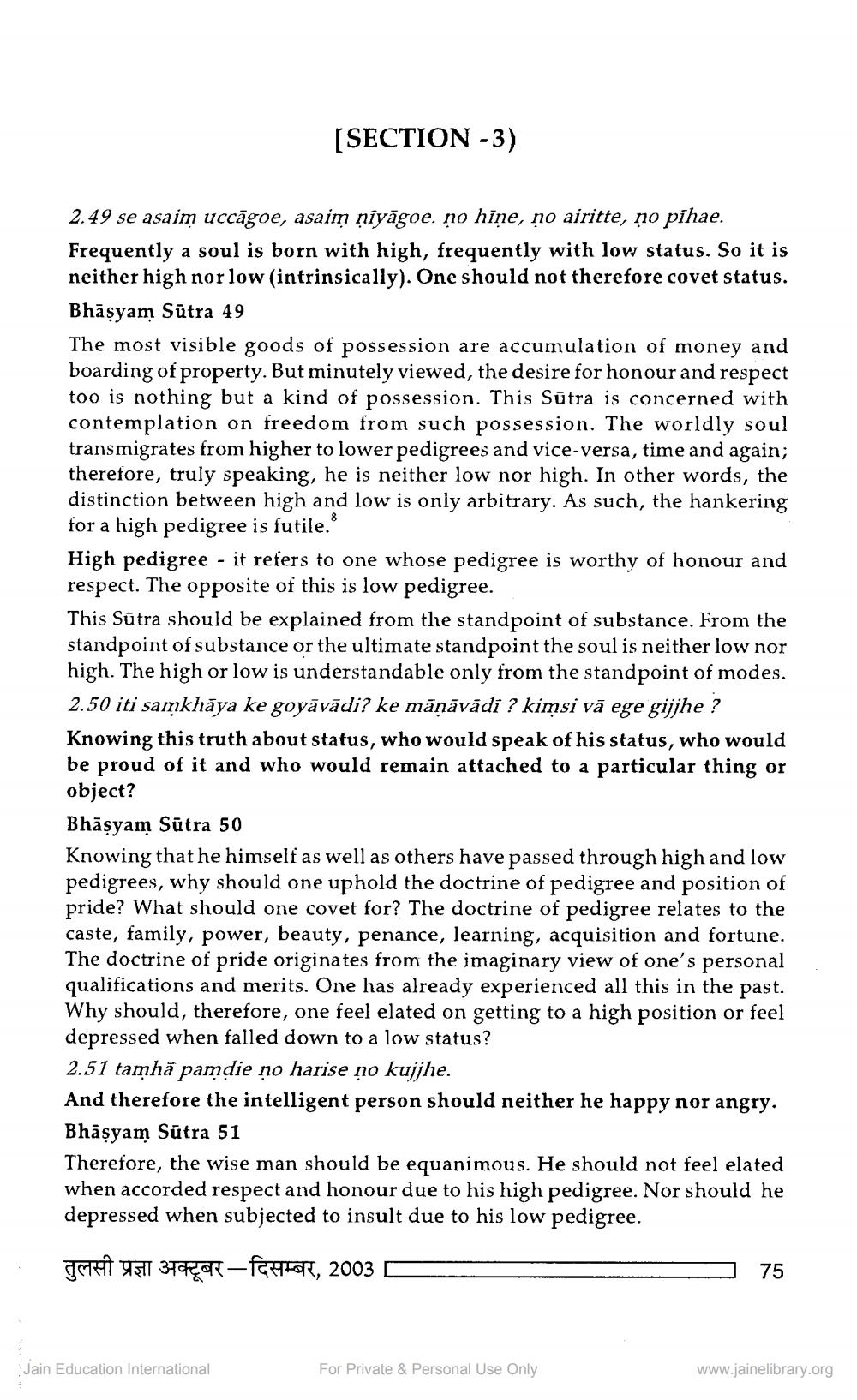________________
[SECTION -3)
2.49 se asaim uccāgoe, asaim niyāgoe. ņo hine, no airitte, no pihae. Frequently a soul is born with high, frequently with low status. So it is neither high nor low (intrinsically). One should not therefore covet status. Bhāoyam Sutra 49 The most visible goods of possession are accumulation of money and boarding of property. But minutely viewed, the desire for honour and respect too is nothing but a kind of possession. This Sūtra is concerned with contemplation on freedom from such possession. The worldly soul transmigrates from higher to lower pedigrees and vice-versa, time and again; therefore, truly speaking, he is neither low nor high. In other words, the distinction between high and low is only arbitrary. As such, the hankering for a high pedigree is futile. High pedigree - it refers to one whose pedigree is worthy of honour and respect. The opposite of this is low pedigree. This Sūtra should be explained from the standpoint of substance. From the standpoint of substance or the ultimate standpoint the soul is neither low nor high. The high or low is understandable only from the standpoint of modes. 2.50 iti samkhāya ke goyāvādi? ke māṇāvādi ? kimsi vā ege gijjhe ? Knowing this truth about status, who would speak of his status, who would be proud of it and who would remain attached to a particular thing or object? Bhāśyam Sutra 50 Knowing that he himself as well as others have passed through high and low pedigrees, why should one uphold the doctrine of pedigree and position of pride? What should one covet for? The doctrine of pedigree relates to the caste, family, power, beauty, penance, learning, acquisition and fortune. The doctrine of pride originates from the imaginary view of one's personal qualifications and merits. One has already experienced all this in the past. Why should, therefore, one feel elated on getting to a high position or feel depressed when falled down to a low status? 2.51 tamhā pamdie no harise no kujjhe. And therefore the intelligent person should neither he happy nor angry. Bhāsyam Sūtra 51 Therefore, the wise man should be equanimous. He should not feel elated when accorded respect and honour due to his high pedigree. Nor should he depressed when subjected to insult due to his low pedigree.
CME
Fil 377 al-fattore, 2003 C
A
75
Jain Education International
For Private & Personal Use Only
www.jainelibrary.org




